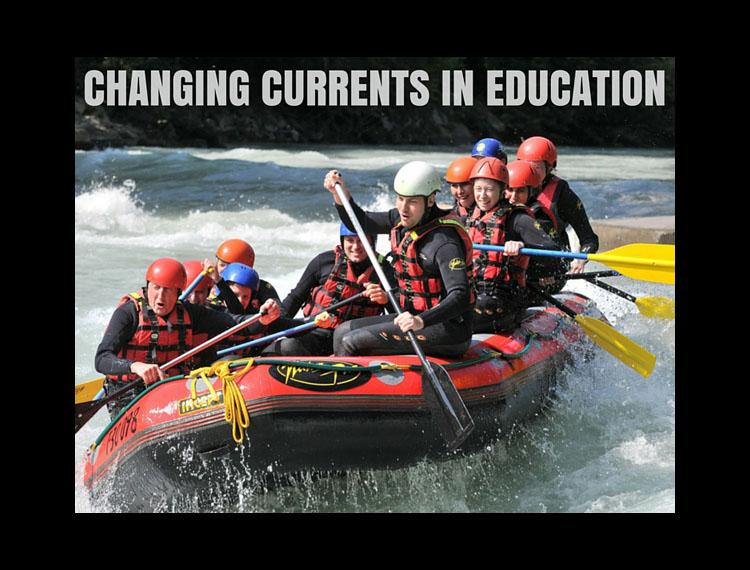Changing Currents in Education

Turbulent times across the sector are indicative of the changes that will need to take place if we are to remain at the forefront of world-class education, training and skills in the UK. With consolidation, imposed cuts, a lack of clarity and considerable uncertainty, it is paramount that we understand how we are to respond to these challenges and remain resilient in the coming years. By looking at this diversity of change ahead and the challenges faced by delivering to a broadening customer base of learners, professionals, employers and other stakeholders we can begin to build a bigger picture of the wider implications of how these will influence meaning change in the way the sector operates.
Across all sectors in education is a firm held belief that we can make a positive impact on the lives of individuals. For this to take place we endeavor to empower those professionals who work across the sector with the training and support to achieve this.
Secondly we subscribe to a legacy of ‘lifelong’ learning. Curiosity is our greatest premise when walking into a classroom, virtual or otherwise and we have a responsibility to show future generations how they can make a difference too.
In order to continue to uphold these two beliefs following area reviews, we need to better understand how to influence meaningful change in the way we run educational organisations and how learners engage with them. We must also question the mechanism for this shift in mindset and challenge the validity of more conventional approaches to change.
White water rafting vs Oxford and Cambridge boat race
The annual boat race and white water rafting analogy is intended to compare the huge advances in approach to cultural change over the last decade; one a backward struggle to reach the finishing line first with the coxswain beating a steady rhythm, the second a modern day roller coaster ride of endurance with many twists and turns. Modern ‘cultural change’ has had to adapt to become a white water rafting experience rather than a simple race to the finish.
The boat race is not without its challenges; endurance, teamwork and a clear start point and end goal with the determination to succeed. White water rafting is still very much a team game but with a difference; its end goal is not always visible and the turbulent water holds many hidden challenges and those individuals have far less control over the ultimate direction and speed of travel in their inflatable.
No longer ploughing away with backs to the finish line, meaningful change in today’s organisations’ is a white water rafting experience with constant movement in all directions, an elusive finish line and fluctuations in progress along the way that rely on all team members facing these challenges head on and together. Business psychologist Elisabeth Wray goes on to explain, “The journey provides a depth of understanding that begins to explain the complex interaction of the factors that affect performance in today’s educational environment.”
Meaningful reforms will fail to gain traction unless it include those individuals who are key to making change possible; the teachers, lecturers and numerous support staff who influence the lives of learners every day. By bringing those ‘onboard’ and leading by example we can truly make the shift in mindset toward a more proactive and positive working environment.
Tim Evans is the director of Lean4Learning, providing efficiency savings across the education sector











Responses